Mono? In Your Mid-50s?
I learned first-hand that, contrary to common misconception, you can contract the dreaded "kissing-disease" as an older adult.
I couldn’t wait for summer 2021. I can never wait for summer, but in 2021, the anticipation felt nearly unbearable.
The promise of not just summer but vaccinated, unmasked summer lifted my spirits like nothing in recent memory. In 2021, the advent of Covid vaccines afforded us a certain level of safety and assurance, and a new level of freedom that the summer of 2020 had lacked—even though that first Covid summer my husband and I had found ways to cautiously spend time outdoors with friends and family, usually socially distanced around the backyard fire pit Brian and a friend had fashioned expressly for this purpose.
In summer 2021, we’d finally be sprung after nearly a year-and-a-half of lockdown. (Oh, how blissfully ignorant we were: We didn’t yet know that Delta was coming to spoil the “hot vax summer” party six weeks in, followed shortly afterward by Omicron, then assorted sub-variants...and who knows what’s next.)
I had big plans! I was going to take the Trailways bus from Kingston, NY, where I live, to Manhattan, to catch the Alice Neel show at the Met, and later meet up with friends I hadn’t seen since The Before Times at Sid Gold’s Request Room for an evening of piano bar karaoke. Maybe I’d book a discounted room on Hotel Tonight, filling a whole weekend with in-person book events and other adventures in the city I’ve missed since leaving the East Village in 2005.
In 2021, the advent of Covid vaccines afforded us a certain level of safety and assurance, and a new level of freedom that the summer of 2020 had lacked.
Maybe I’d finally meet, IRL, (“in real life”) some of the internet friends I’d corresponded with for years but most intensely during the worst of the pandemic, at one point even becoming pen pals, doing our small part to try and save the United State Postal Service. I planned to travel to the Bay Area to see my dad and stepmother, and to spend long weekends visiting my mom, my sister, and her family by the ocean on Long Island, feasting on buckets of steamers and buttered sweet corn on Point Lookout docks. I’d finally get to wear the red clog sandals, the blue polka dot tankini, the vintage sundress I never got to show off the summer before.
I was perfectly primed for re-entry. In mid-June, I met a huge deadline, lending a “School’s Out for Summer” vibe to my imminent freedom. Then, two days later, I fell ill.
***
It started with a terrible pain in my neck, beginning near my uppermost vertebrae, then radiating around to the sides, and yielding a large lump—a visibly swollen lymph gland—nestled between my jaw and my right ear. Hours later I started experiencing the worst throat pain of my life, which is saying a lot, given that since childhood I’ve been cursed with frequent throat infections. Taking even tiny sips of water was like swallowing razor blades. My fever spiked to 103.
During one of my many doctors’ appointments, I asked, “Could this be mono?” My doctor immediately dismissed the idea. “What? You’re way too old for mono,” he said.
After a few days passed with no relief, I went to see one doctor, and then another. And then another, still. I was given one antibiotic that didn’t work, and then a second. It was the beginning of a Keystone Cops episode, in which I’d ultimately be misdiagnosed by three different physicians before receiving an accurate diagnosis: mononucleosis.
We might never have arrived at that diagnosis if I hadn’t self-advocated, something I’ve had to do since I was 18 and needed to push for diagnostic surgery to diagnose my endometriosis. During one of my many doctors’ appointments, I asked, “Could this be mono?” My doctor immediately dismissed the idea.
“What? You’re way too old for mono,” he said.
“A close friend of mine just had it last year, though,” I pointed out, “and she’s my age.” I was 55. I later learned that I was one of five 50-something women in my broader social circle to have contracted mono recently. Eventually I came to realize later-in-life mono was frustratingly like so many conditions affecting older women: largely unresearched.
“Well, I’d like to see her labs,” my doctor replied. “I bet it wasn’t actually mono.”
“Can we just do the test anyway?” I begged. He relented, and I headed to a nearby LabCorp facility to have my blood drawn.
I was 55. I later learned that I was one of five 50-something women in my broader social circle to have contracted mono recently. Even later, I came to realize later-in-life mono was frustratingly like so many conditions affecting older women: largely unresearched.
The next day, before my lab results came back, I went to see an ear, nose, throat specialist, on my doctor’s referral. The theory, since my raging throat infection and fever weren’t responding to antibiotics, was that I had a peri-tonsillar abscess, also known as a “quinsy.” I was warned that the ENT would likely lance said abscess—that the procedure would likely be excruciating, but was a necessary first step toward relief of my symptoms.
I was nervous as Brian drove us across the river to the ENT’s office. I couldn’t imagine submitting to even greater pain than I was already in, plus I am incredibly squeamish; I couldn’t stop imagining having a mass near my gargantuan tonsil sliced open with a scalpel and drained.
What happened instead was worse.
***
When I entered the ENT’s exam room, he took one look at my throat—coated with white patches, my right tonsil particularly enlarged and ugly, resembling an alien’s eyeball—and shouted, “Whoa! That’s not an abscess! It’s a tumor! It’s cancer!” He called Brian in from the waiting room, then told us both that while we’d need a biopsy to confirm it, he was ninety-nine percent sure from that one glance that the mess in my throat was malignant. He insisted I’d need radiation, surgery, and possibly chemo.
When I entered the ENT’s exam room, he took one look at my throat—coated with white patches, my right tonsil particularly enlarged and ugly, resembling an alien’s eyeball—and shouted, “Whoa! That’s not an abscess! It’s a tumor! It’s cancer!”
I wept on the ride home. Brian was silent. Then I got into the house and opened my laptop. There I was greeted by a very welcome counter-narrative: an email from LabCorp informed me that my blood work from the day before indicated I did, in fact, have mono.
I called my general practitioner.
“Um, do I have mononucleosis? Or do I have cancer?!”
“Mononucleosis for sure,” he said. I had it bad, he added; my liver enzymes were apparently off the charts, indicating I had the mild hepatitis associated with mono. He said the likelihood that I’d developed cancer and contracted mono within the same period of a few days was infinitesimal. We agreed that if my tonsils didn’t go back to normal at the end of the acute phase of mono, I’d go for a biopsy. (They did, and so I didn’t.)
Mono is a slow-moving condition, most often caused by the Epstein-Barr virus, so antibiotics aren’t helpful. It’s in the herpes family, yet antiviral medications that help relieve symptoms of other herpes-related viruses don’t work, either. My doctor told me there was nothing for me to do, other than gargle frequently with warm salt water, drink plenty of fluids, and rest. And rest. And rest. For how long? According to the CDC, anywhere from several weeks, to as many as six months. My doctor explained that the highly symptomatic “acute” phase typically lasts three to four weeks, followed by the exhaustion-filled “convalescent” phase—which can go on for months.
My doctor told me there was nothing for me to do, other than gargle frequently with warm salt water, drink plenty of fluids, and rest. And rest. And rest.
This was not what I wanted to hear, just as some friends were inviting us out to newly reopened bars, restaurants, and music venues, and others were gearing up for their annual trips to the Cape or the Jersey Shore. I wasn’t ready to accept my new predicament, nor the realization that getting better was going to require patience, something I was fresh out of, after such an extended period of isolation and yearning during more than a year of lockdown.
I silently petitioned the gods. “Have you not witnessed me being so patient for over a year?!” It was, of course, to no avail. This diagnosis was effectively the kiss of death for my “normal” summer. My wings were clipped before I’d even had the chance to spread them.
***
Contracting mono felt like a particularly bad realization of a fear I’d harbored in the months before so many mask mandates were lifted: that after so much time hidden away from people and their germs—a period during which I enjoyed my longest break, historically, from being sick—my immune system would be rendered even weaker than usual, and I’d catch the very first bug I encountered out in the germ-filled world. I figured the culprit would be something more familiar, like my old friend, streptococcus, or rhinovirus, aka a cold, which might blossom into bronchitis, as so many others had. Not a long-lasting viral condition that more commonly afflicts teens and young adults.
According to a July 23, 2021 CDC report, my fear was not at all unfounded. It turned out that in the summer of 2021 there’d been a spike in colds, the flu, and other respiratory infections as people abandoned Covid precautions. A New York Times article covering the report bore the headline, “Why Everyone Has the Worst Summer Cold Ever.” People were getting sicker, and for longer, than they might have in the past, in part because their immune systems had grown rusty in quarantine.
I couldn’t work, couldn’t think, couldn’t tend to household chores, couldn’t leave my home to go out to eat, or anything. This, after having waited so long, after having just endured the most desolate winter ever, within the confines of my house—heartbreaking for an extremely social creature like me.
My own ridiculous immune system just had to be different, going for the big guns, putting me on house-arrest for the duration of both summer and fall of 2021. Boy, did mono suck. During the first four weeks, my throat was on fire, my head pounded, my body ached. With my liver and spleen enlarged and my liver enzymes dangerously elevated, I had hardly any appetite, and struggled to keep down whatever small amounts of food I was able to consume, vomiting frequently, leading me to drop seven pounds.
I couldn’t work, couldn’t think, couldn’t tend to household chores, couldn’t leave my home to go out to eat, or anything. This, after having waited so long, after having just endured the most desolate winter ever, within the confines of my house—heartbreaking for an extremely social creature like me.
When I began to be able to eat again, I found that my palate had been strangely altered. I couldn’t bring myself to consume some of my favorite things, like my beloved morning coffee, chocolate, steamers, aka “belly clams”—the summer food I love most. I developed a strange taste for Dorito’s. I’ve never been a big chip person, but suddenly I needed what Brian and I have come to affectionately refer to as “Vitamin D,” which had a way of reviving me for an hour or so.
There was a wearying pattern to my days: In the mornings I tended to feel woozy—headachy, slightly nauseated, dizzy; in the afternoons I was so wiped out, I sometimes had to lie down between bites of my lunch; in the evenings, from around 6pm to 9pm, I experienced a slight energy surge that allowed me to prepare, or help Brian prepare, dinner; then I’d pass out hard in the middle of whatever show we were bingeing.
I developed a strange taste for Dorito’s. I’ve never been a big chip person, but suddenly I needed what Brian and I have come to affectionately refer to as “Vitamin D,” which has a way of reviving me for an hour or so.
It remains a mystery how I contracted mono, “the kissing disease,” which people much younger than me usually give to one another while making out. (I assure you I did not get this from French kissing people half my age!) The incubation period for mono is four to six weeks, which, in my case, would have meant I caught it sometime in early or mid-May, 2021. But at that point I still rarely left my house, and any time I went into a store, I wore a mask. It’s quite possible I initially caught the Epstein-Barr virus a long time ago, when I was in my teens or twenties, and it had been languishing in my spinal fluid for decades, waiting for a stressful time—or the period of relief after a stressful time—to pounce. With no forensics at my disposal, though, I didn’t have a way to learn my infection’s provenance, and I probably never will. All I knew that summer and fall was that I had mono, and I had to make peace with it, surrender to it—to stop fighting the sad reality of it so I could rest and get well.
***
I felt sorry for myself for several weeks. Then, just as I began shifting out of the “acute” phase of mono into the “convalescent” phase, I read a guest essay in the New York Times by Tracy Kennard, a woman I was friendly with, about her battle with terminal nasopharyngeal cancer, and my perspective shifted. It was the exact type of cancer I’d been misdiagnosed with before I received a positive result on my mono test.
I’d been relieved to learn I most likely didn’t have cancer. But just how fortunate I was didn’t fully sink in until I read Tracy’s essay. In her beautiful and devastating piece, she wrote about her struggle with a stage of cancer her doctors said was terminal—more specifically, how difficult it had been to feed herself, and relocate her appetites, given how treatment had ravaged her throat. Tracy was something of a foodie, the former co-owner of Brunette, a wonderful wine bar and tapas restaurant here in Kingston, where she and her husband had kindly hosted literary events I used to put together through Kingston Writers’ Studio. Not being able to easily swallow food, not being able to enjoy or even desire so many foods she loved, had been devastating to her.
I felt sorry for myself for several weeks. Then, just as I began shifting out of the “acute” phase of mono into the “convalescent” phase, I read a guest essay in the New York Times by Tracy Kennard, a woman I was friendly with, about her battle with terminal nasopharyngeal cancer, and my perspective shifted.
Reading the piece, I felt utterly heartbroken for Tracy and her husband, and overcome with gratitude that Brian and I were not in their shoes. The whole thing could have gone another way for me, and I was unbelievably lucky it didn’t. The stark contrast in our situations took my breath away.
It may have given me the fortitude I needed to soldier through my boring, slow-moving affliction, which ultimately lasted six months; I was finally fully well again in late December, 2021. Mono later in life is a beast, and enduring it made me miserable, physically and emotionally. But it is by orders of magnitude less catastrophic than throat cancer—which ultimately took Tracy’s life, in November, 2021, when she was just 47, way too young to die.
My summer of '21 might have been ruined, but summer of '22 was a hell of a lot better. And maybe I’ll be lucky and have many more summers ahead of me.


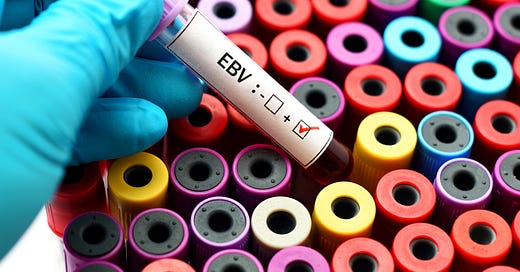



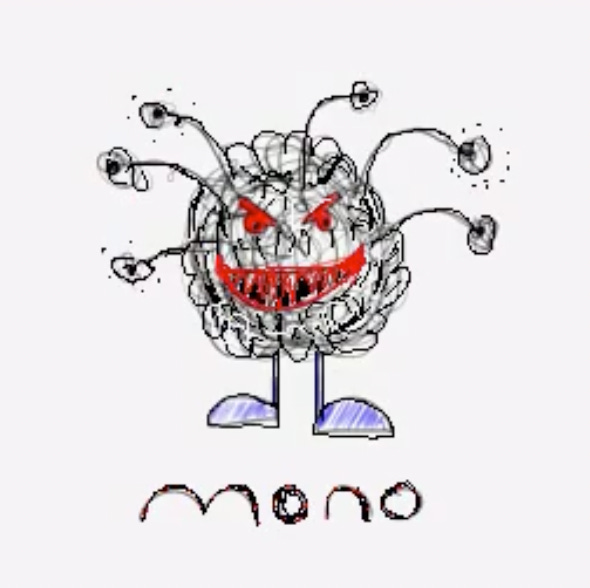
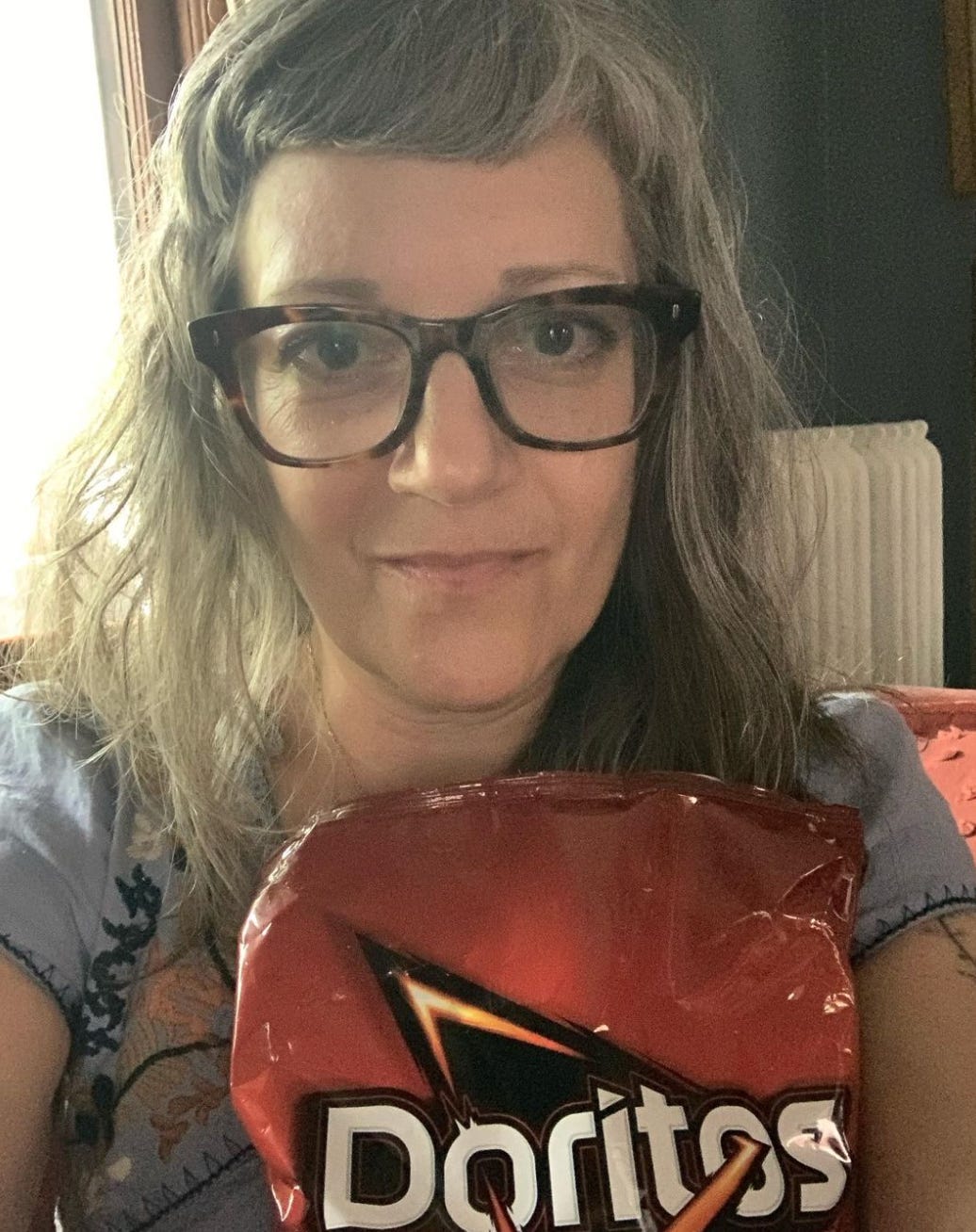
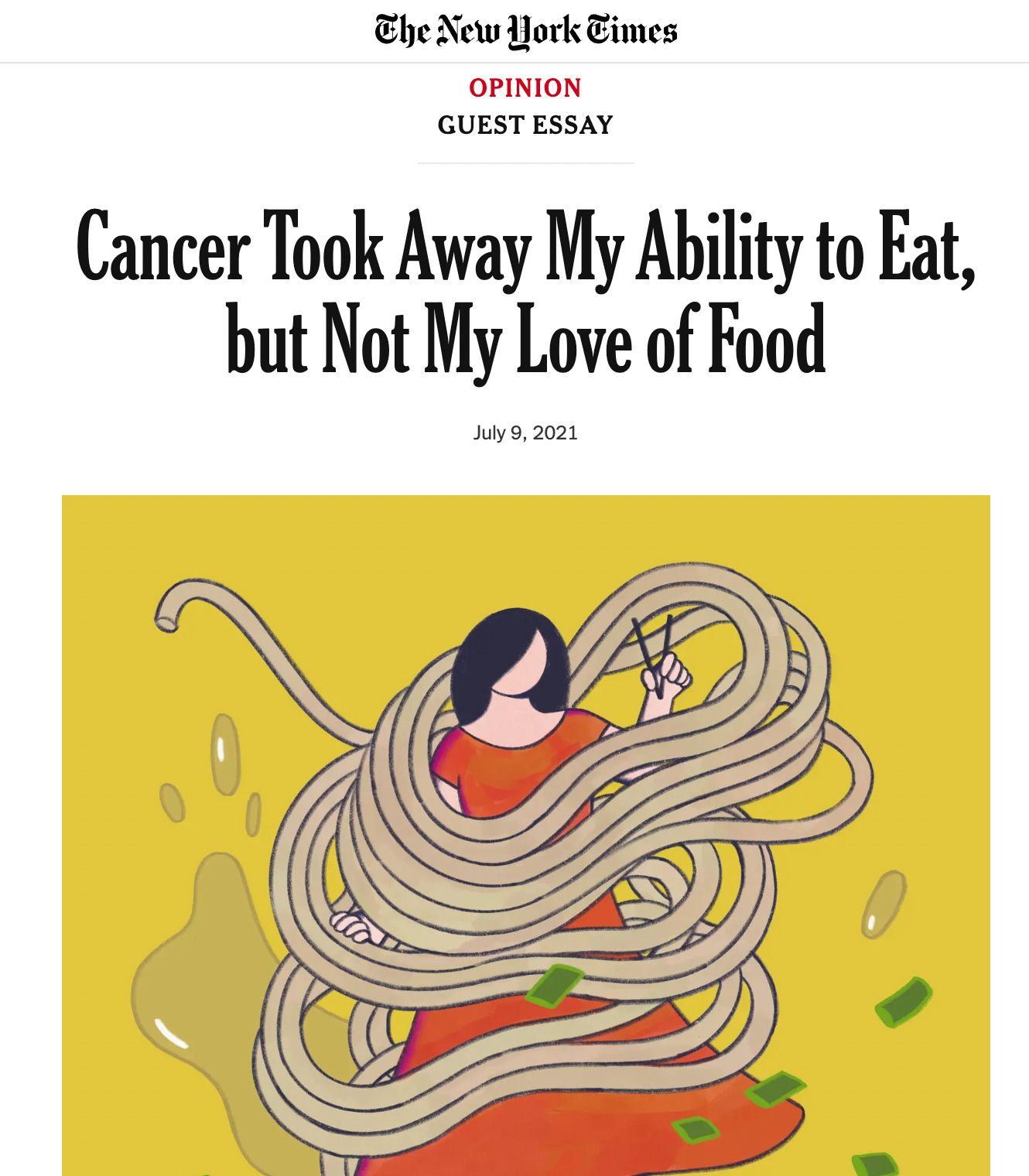
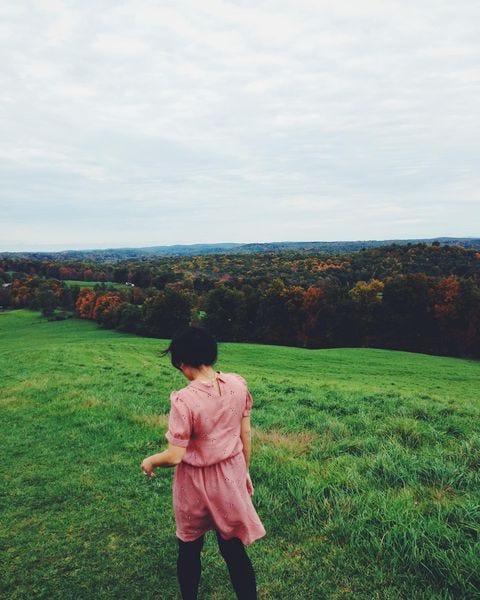
Glad you're recovered! Am I the only one who recognizes the enormous untapped potential of medical research for older women? We're an underserved and overlooked population in general, but our unexplored medical experiences and needs in particular seem like they could yield a ton of new breakthroughs. Among my clients in the biotech world I'm starting to hear some rumblings, but jeez... let's get this party started already!
I had mono as a teenager. I also had a boyfriend that my mom didn't like and those two facts collided when I had been sick and was finally diagnosed with mono. When the doctor said I had mono, my mom looked shocked and asked the doctor "should I tell the boys parents?" The doctor looked at her astonished and said, "why? she's not pregnant, she just has mono."
Needless to say, my mom and I didn't see eye to eye on much, especially my boyfriend, and I felt vindicated when my doctor appeared to admonish her for overreacting which she did quite frequently about most everything related to me in my teenage years. I also wasn't the model teenager either, but that is a story for another day. lol